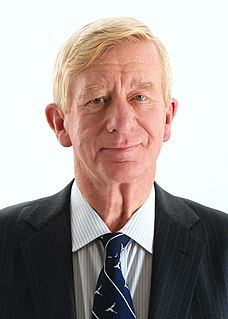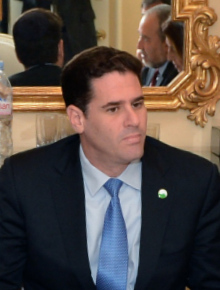A Quote by Carroll Quigley
The argument that the two parties should represent opposed ideals and policies, one, perhaps, of the Right and the other of the Left, is a foolish idea acceptable only to doctrinaire and academic thinkers. Instead, the two parties should be almost identical, so that the American people can throw the rascals out at any election without leading to any profound or extensive shifts in policy. Then it should be possible to replace it, every four years if necessary, by the other party, which will be none of these things but will still pursue, with new vigor, approximately the same basic policies.
Quote Topics
Academic
Acceptable
Almost
American
American People
Any
Argument
Basic
Election
Every
Extensive
Foolish
Four
Four Years
Idea
Ideals
Identical
Instead
Leading
Left
Necessary
New
None
Only
Opposed
Other
Out
Parties
Party
People
Perhaps
Policies
Policy
Possible
Profound
Pursue
Rascals
Replace
Represent
Right
Same
Shifts
Should
Still
Then
Things
Thinkers
Throw
Two
Vigor
Which
Will
Without
Years
Related Quotes
Their [BBC] idea of bipartisanship is to try not to offend the Conservative party, try not to offend the Labour party.There is no analysis of anything beyond that, and these two parties are exactly identical, following the same Neoliberal policies for thirty years. And it's no criticism outside of that, it's just that there's basically sectarian pandering to these two individual parties, these two individual organisations. They still make a lot of great programmes and do a lot of great things, but there's not much political analysis happening broader to that.
In this rigged, two-party system, third parties almost never win a national election. It's obvious what our function is in this constricted oligarchy of two corporate-indentured parties - to push hitherto taboo issues onto the public stage, to build for a future, to get a young generation in, keep the progressive agenda alive, push the two parties a little bit on this issue and that.
I believe in the platform of the Libertarian party, which is different from that of the other two parties and I believe that it would be good for the country if the Libertarians were - had a seat at the table to speak truth to power of the other two parties, which now have this monopoly in Washington. Having said that, I'm not taking back anything I said about the massive difference between the two establishment party candidates.
Shouldn't the American leadership be addressing what is happening in America, with its domestic policies on racism, discrimination, illegal monitoring, solitary confinement, torture, Guantanamo Bay and any other social and political issues related to the American society not directly connected to Islam? American Muslims must speak out and be involved as well in international policies and, through their institutions, they should raise their voice. This is the way you serve the community.
The right-of-centre parties still often compete with left-of-centre ones to proclaim their attachment to all the main programmes of spending, particularly spending on social services of one kind or another. But this foolish as well as muddled. It is foolish because left-of-centre parties will always be able to outbid right-of-centre ones in this auction - after all, that is why they are on the left in the first place. The muddle arises because once we concede that public spending and taxation are than a necessary evil we have lost sight of the core values of freedom.
I think we should do better next week, better the week after, and better right throughout the course of our government. Sometimes in parties these things happen, but it is not acceptable and I do believe that what people now want to do is to debate the future - about policy - and I think the issues about what Tony Blair will or will not do are going to be left to Tony Blair
Even as considering African-Americans, immigrants and other groups who may be marginalized in different ways, American Muslims are still one of the most marginalized groups. Overt prejudice is probably more acceptable toward American Muslims than any other single group in the U.S. There is still a lot of policies in place that are incredibly effective that don't show any signs of eroding. So, I don't want to overstate the optimism but I think things are headed gradually in the right direction. Just because of the distance between us and 9/11.
In truth a clear-headed physicalist shouldn't be thinking any of these dualist thoughts. If pains are one and the same as C-fibres firing, then there really isn't any possibility of having 'one' without the 'other'. Once you properly appreciates physicalism, this dissociation should cease to appear possible - C-fibres with pains should strike you as no more possible than squares without rectangles.
There's a lot of disputes around the world, a lot of territorial conflicts around the world. But Israel is the only country in the world whose capital is not recognized. I don't think the United States recognizing Jerusalem as a capital will prevent any sort of peace agreement from happening in the future. It's not actually a sensible argument. What it will do is it will right a historic wrong. Something that should have happened 69 years ago will finally happen. And then we have to get about the process of trying to advance peace between the parties.
I have said there are three principles that should be followed. One, we should maintain the "one China" policy that every American president has articulated, including President Reagan. Secondly, we should make clear that we want a peaceful resolution. And three, Taiwan should not challenge that arrangement in a way that will provoke a conflict. Those are three perfectly clear principles. I haven't used any of the other slogans.




































